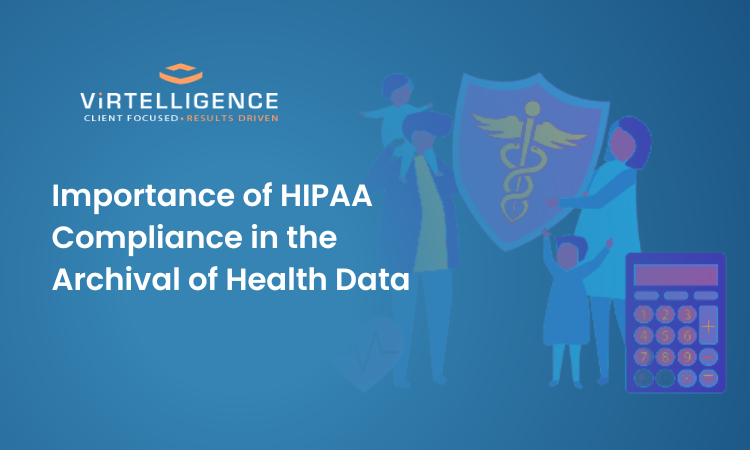
In today’s digital age, the significance of HIPAA compliance for health data archival cannot be overstated. The Health Insurance Portability and Accountability Act (HIPAA) was enacted in 1996 with the aim of protecting the privacy and security of patients’ health information. With the rapid advancement of technology and the increasing amount of sensitive data being stored electronically, it has become crucial for healthcare organizations to ensure HIPAA compliance in their data archival practices. This article will delve into the various aspects of HIPAA compliance and highlight its significance in safeguarding health data.
The Basics of HIPAA Compliance
HIPAA compliance refers to adhering to the rules and regulations set forth by the HIPAA legislation to protect the confidentiality, integrity, and availability of health information. It applies to covered entities, such as healthcare providers, health plans, and healthcare clearinghouses, as well as their business associates who handle patient data on their behalf. Compliance with HIPAA ensures that the privacy rights of individuals are respected, and their health information is adequately protected.
Understanding Health Data Archival
Health data archival involves the long-term storage and management of patient health records and related information. With the transition from paper-based records to electronic health records (EHRs), the process of archival has become more complex. Electronic records offer numerous benefits, such as easy accessibility, streamlined workflows, and improved patient care. However, they also pose unique challenges in terms of data security and privacy.
Significance of HIPAA Compliance in Health Data Archival
HIPAA compliance plays a pivotal role in ensuring the security and privacy of health data during the archival process. Let’s explore some key reasons why HIPAA compliance is significant:
1. Protecting Patient Privacy
Patient privacy is of utmost importance in healthcare. HIPAA compliance mandates the implementation of measures to protect the privacy of individuals’ health information. This includes restrictions on unauthorized access, disclosure, and use of protected health information (PHI). By adhering to HIPAA guidelines, healthcare organizations can safeguard patient privacy and maintain their trust.
2. Mitigating Data Breach Risks
Data breaches can have severe consequences for both patients and healthcare providers. Breached health data can be exploited for identity theft, fraud, or other malicious purposes. HIPAA compliance ensures the implementation of robust security measures to prevent unauthorized access, encryption of data, regular vulnerability assessments, and timely breach notifications. By adhering to HIPAA standards, organizations can mitigate the risks associated with data breaches.
3. Avoiding Legal and Financial Penalties
Non-compliance with HIPAA can lead to significant legal and financial penalties. Violations of HIPAA regulations can result in civil monetary penalties, criminal charges, and reputational damage. Healthcare organizations found to be non-compliant can face hefty fines, ranging from thousands to millions of dollars. By prioritizing HIPAA compliance in health data archival, organizations can avoid these penalties and protect their financial standing.
4. Ensuring Data Integrity and Availability
HIPAA compliance also focuses on maintaining the integrity and availability of health data. It emphasizes the implementation of data backup and recovery procedures, ensuring that data is not only secure but also accessible when needed. This is crucial for providing continuous patient care, supporting research, and complying with legal requirements.
Conclusion
The significance of HIPAA compliance for health data archival cannot be emphasized enough. Compliance with HIPAA regulations is crucial for protecting patient privacy, mitigating data breach risks, avoiding legal and financial penalties, and ensuring the integrity and availability of health data. By prioritizing HIPAA compliance, healthcare organizations can build patient trust, safeguard sensitive information, and contribute to the advancement of healthcare innovation.
FAQs
FAQ 1: What is the purpose of HIPAA compliance?
HIPAA compliance is designed to protect the privacy and security of individuals’ health information. It ensures that healthcare organizations handle patient data responsibly and implement measures to prevent unauthorized access, use, or disclosure.
FAQ 2: Who needs to comply with HIPAA regulations?
Covered entities, such as healthcare providers, health plans, and healthcare clearinghouses, must comply with HIPAA regulations. Additionally, their business associates who handle patient data on their behalf are also required to comply.
FAQ 3: What are the consequences of non-compliance with HIPAA?
Non-compliance with HIPAA can result in legal and financial penalties. Healthcare organizations found to be non-compliant may face substantial fines, criminal charges, and reputational damage.
FAQ 4: What measures can healthcare organizations take to ensure HIPAA compliance in health data archival?
Healthcare organizations can ensure HIPAA compliance by implementing security safeguards, conducting regular risk assessments, training employees on data security practices, and establishing policies and procedures for handling health information.






